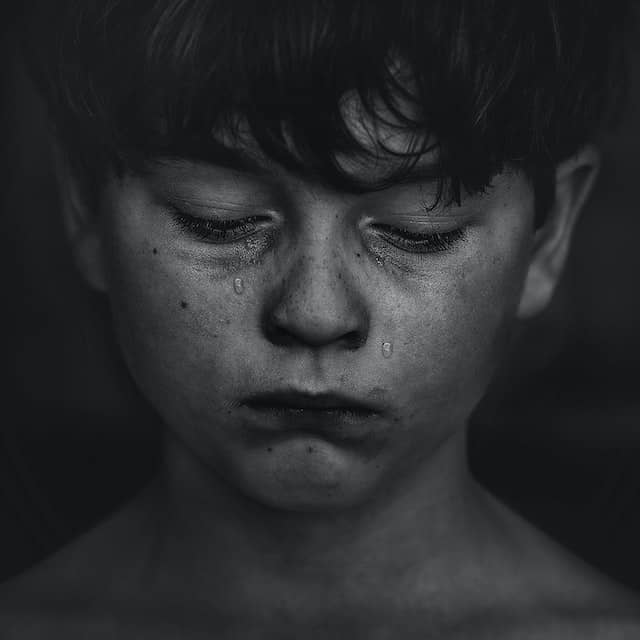Why was Ralph sobbing at the end of Lord of the Flies? In William Golding’s classic novel “Lord of the Flies,” the character of Ralph undergoes a harrowing journey as he and a group of boys become stranded on an island with no adults to guide them. By the end of the story, Ralph finds himself weeping, and the reason for his tears is both heartbreaking and profound. Ralph wept for the loss of innocence he experienced on the island, the realization of the darkness within every person’s heart, and the tragic death of his close friend Piggy. In this article, we will delve deeper into the reasons behind Ralph’s tears and explore the themes that Golding seeks to convey through this powerful moment.
Why was Ralph sobbing at the end? (Complete Answer)
In the Lord of the Flies, Ralph undergoes a transformation when he and a group of young boys are stranded on an uninhabited island. By the end of the story, Ralph is sobbing, and the reason for his tears is both powerful and profound. Ralph sobbed over the end of innocence, the darkness of man’s heart, and the death of his friend Piggy.
Ralph’s tears in Chapter 12 reflect the end of his childhood innocence and the realization of the harsh reality of the world. When he first arrives on the island, he is optimistic and hopeful. However, as he witnesses the boys’ descent into savagery, he becomes increasingly disillusioned. He is forced to come to terms with the fact that the rules and order that he had taken for granted in his previous life no longer apply. The island represents a microcosm of society, and Ralph’s tears symbolize the loss of faith in the goodness of humanity.
Furthermore, Ralph’s tears reflect his understanding of the darkness that lies within every human heart. Throughout the story, he struggles to maintain order and keep the boys from descending into savagery but ultimately fails. The boys’ behavior on the island highlights the innate brutality and cruelty within us all. Ralph’s tears are a poignant acknowledgment of this fundamental truth.
Finally, Ralph’s tears are a tribute to Piggy, his true, wise friend who the other boys brutally killed. Piggy was Ralph’s closest ally, and his death represents the loss of the last remaining vestiges of order and civilization on the island. The fall through the air of this beloved character is a metaphor for the collapse of the boys’ society and their descent into barbarism.
Whose innocence is Ralph crying for at the end of?
Ralph is crying for the loss of innocence at the end of Lord of the Flies. He weeps over his realization that the boys’ actions on the island have demonstrated the darkness of man’s heart. Additionally, he is mourning the loss of his friend Piggy, who he considers a true and wise companion.
Why is Ralph alone at the end of the story Lord of the Flies?
Ralph is alone at the end of the story Lord of the Flies because most of the boys, except for Piggy, leave Ralph’s group and join Jack’s savage tribe. Once Roger kills Piggy, Ralph is truly alone. The boys who joined Jack’s tribe are more interested in hunting and violence rather than maintaining their commitment to civilization and morality. These differences caused a major split in the group, with Ralph being left alone to fend for himself against Jack’s tribe. Ralph’s main goal was to be rescued and returned to the society of adults, which was in line with his commitment to portraying a civilized and moral society. Being alone at the end of the story signifies the tragic loss of innocence and the failure of civilization.
What is ironic about the ending of Lord of the Flies?
The irony in the ending of Lord of the Flies lies in the fact that the naval officer, who symbolizes the authority and order of the adult world, is the one who puts an end to the chaos and violence on the island. However, Golding portrays the officer’s arrival as a moment of bleakness and sadness rather than one of pure joy and relief. This ending is ironic because the boys had hoped for rescue and the return of order, but the reality is that the adult world they longed for had its own flaws and problems. Therefore, the novel’s ending is not happy, as the boys are forced to confront the sobering realization that the world they want to return to may not be the one they expected.
Conclusion
In conclusion, Ralph’s tears at the end of Lord of the Flies are a powerful expression of the loss of innocence, the darkness of humanity, and the tragic death of a true friend. Golding’s novel is a chilling reminder of the fragile nature of civilization and the potential for humanity to descend into savagery. Through Ralph’s tears, Golding emphasizes the importance of maintaining order and preserving the values of civilization in the face of chaos and destruction.
